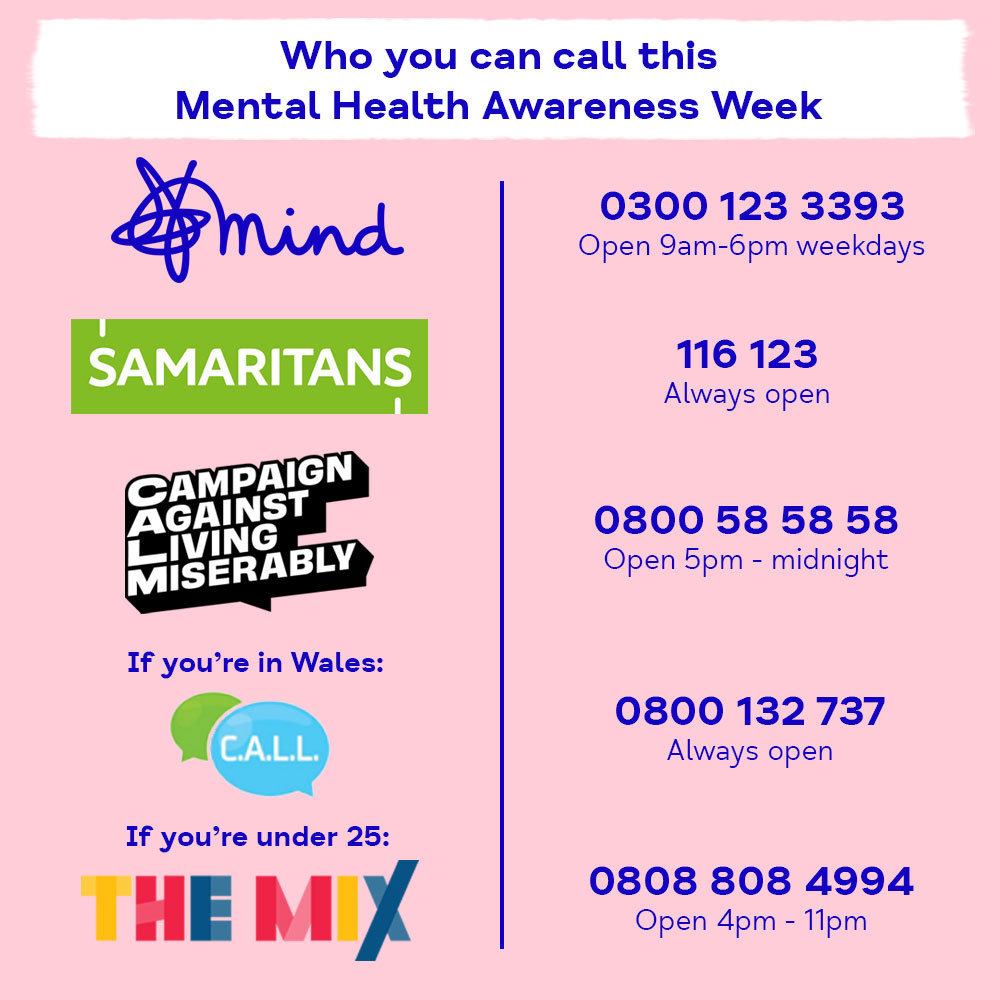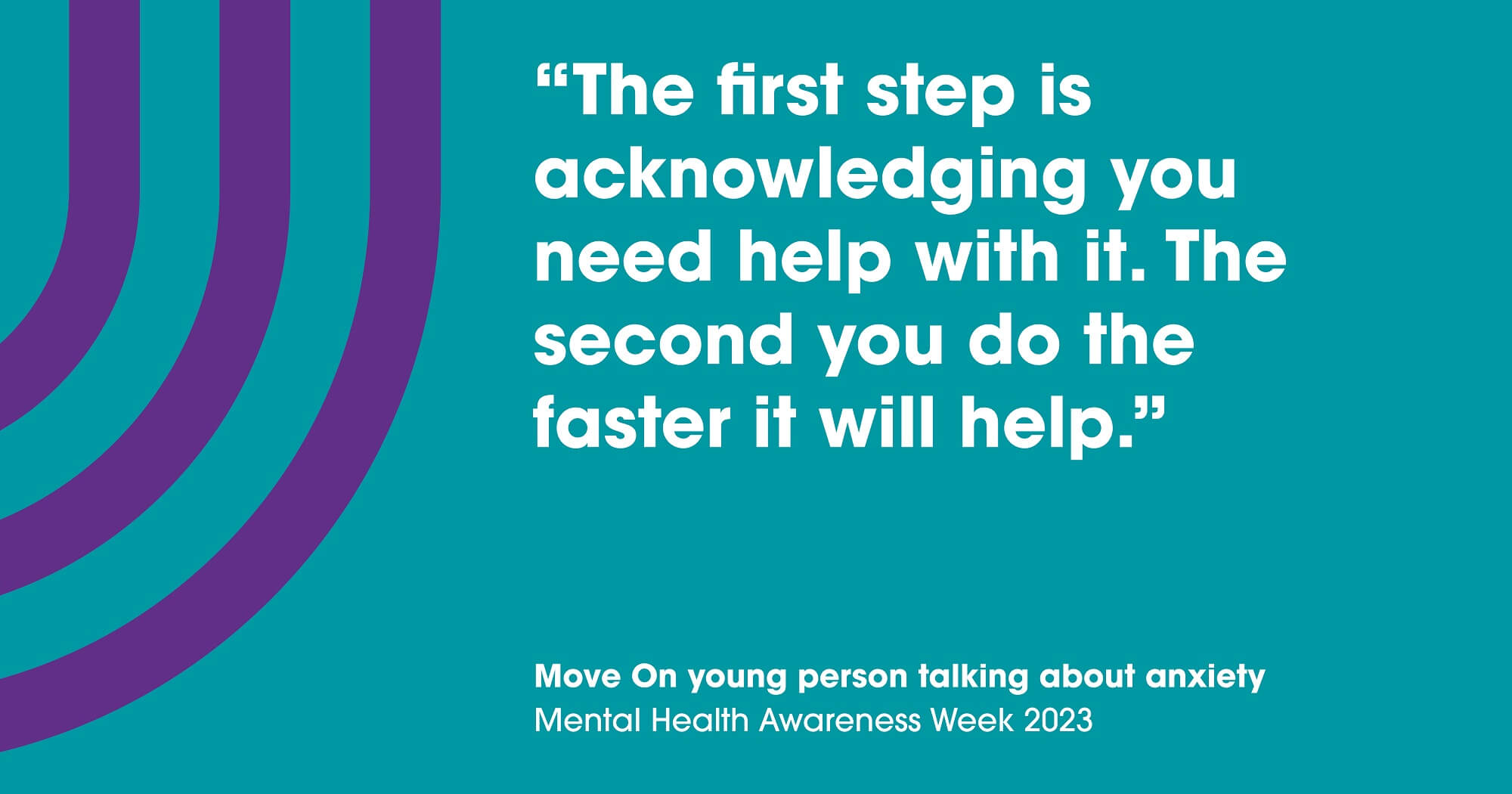Every year, Mental Health Awareness Week provides an opportunity to learn more about issues surrounding mental health and ways to improve our mental wellbeing. How can we learn to become more compassionate, supportive and aware of our mental health?
This year for Mental Health Awareness Week we’re talking specifically about anxiety. Anxiety is a normal emotion everyone feels, however, sometimes it can get out of control and become a mental health issue. In this feature you’ll see a summary of what was discussed and exchanged throughout Mental Health Awareness Week by the Move On team.
“If you experience anxiety you should know that you aren’t on your own. A quarter of adults report feeling anxious to the point where they stopped doing activities they wanted to do ‘some’ or ‘all’ of time.”
The Mental Health Foundation’s most recent survey
What is anxiety?
Alexa from the Mental Health Foundation says: “If you are feeling anxious, you might notice your heart rate increasing, headaches, loss of appetite, breathlessness or chest pain. Anxiety might make you feel tense or nervous, find it hard to relax, feel tearful or have problems sleeping and concentrating. You might be more irritable than usual, or more withdrawn. Or perhaps you seem fine on the outside but feel panicky inside.”
Help is at hand. There are things that we can all do to protect our mental health and manage anxiety.
How can we cope with anxiety?
From worries around money to beating ourselves up for not being “perfect”, we all feel anxious from time to time – the important thing is that we take steps to manage our anxiety and prevent it from becoming a problem. Whether you check in with family or friends or go for a dunk in the sea, developing a positive habit is an important step to protect your mental well-being.
What works will be different from person to person. Things that might be helpful include being active, getting out in nature, practicing breathing techniques, getting support to tackle money worries, or eating well. Talking to a valued friend, or spending time with loved ones, is often an amazing first step. The Mental Health Foundation have a list of their top recommendations which is a great starting point.
For Mental Health Awareness Week, Move On staff, volunteers and young people were asked to share what makes them feel anxious, along with how they try to combat these feelings. Read on to see what they said…
I worry… so I…
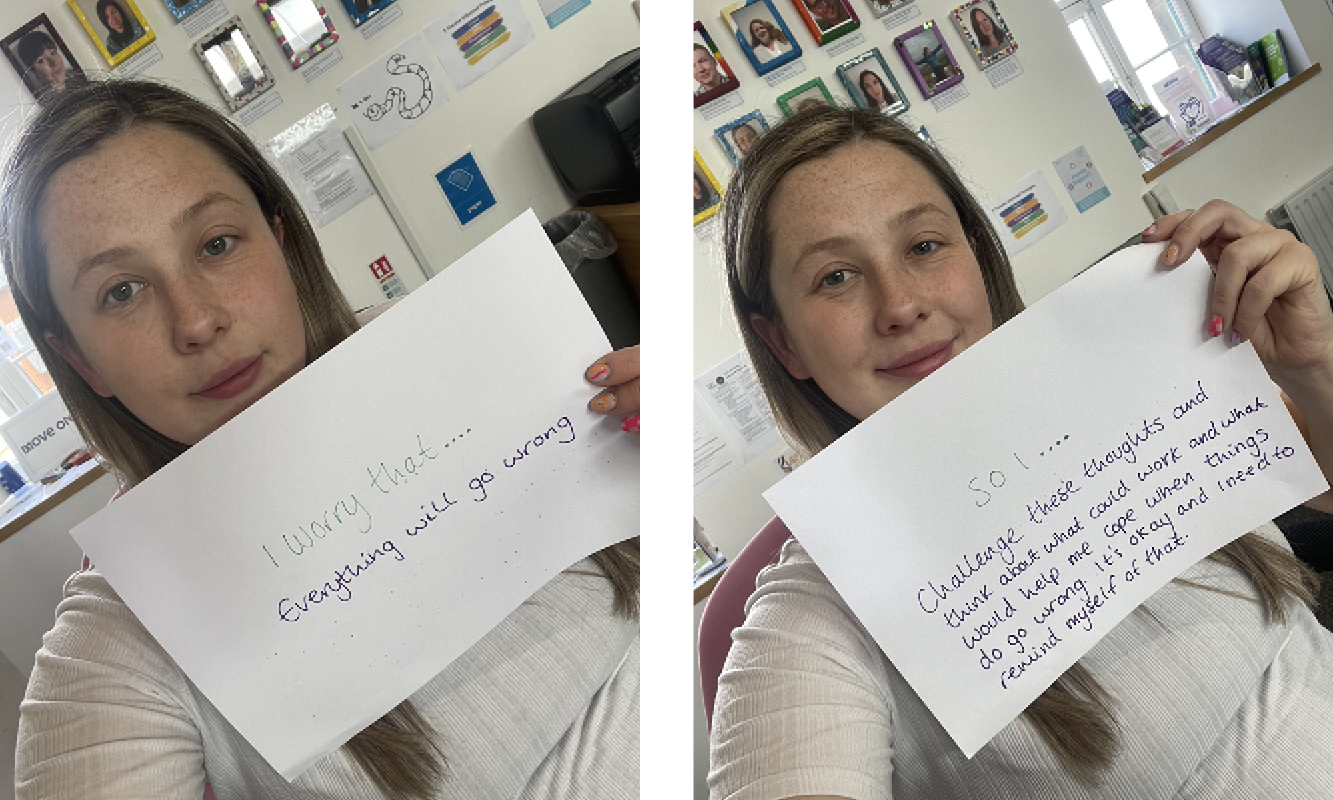
Image caption: “I worry that everything will go wrong. So I challenge these thoughts and think about what could work and what would help me cope when things do go wrong. It’s okay and I need to remind myself of that.”
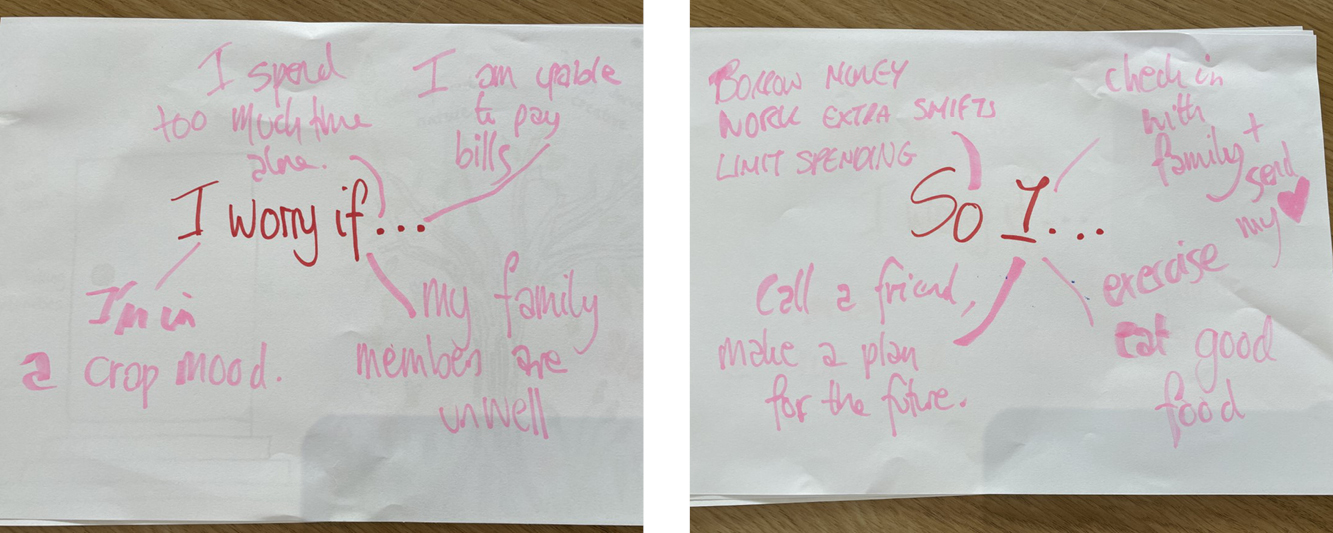
Image caption: “I worry if: I spend too much time alone; I am unable to pay bills; my family members are unwell; I’m in a cr*p mood. So I: call a friend, make a plan for the future; borrow money, work extra shifts, limit spending; check in with family and send my love; exercise; eat good food.”
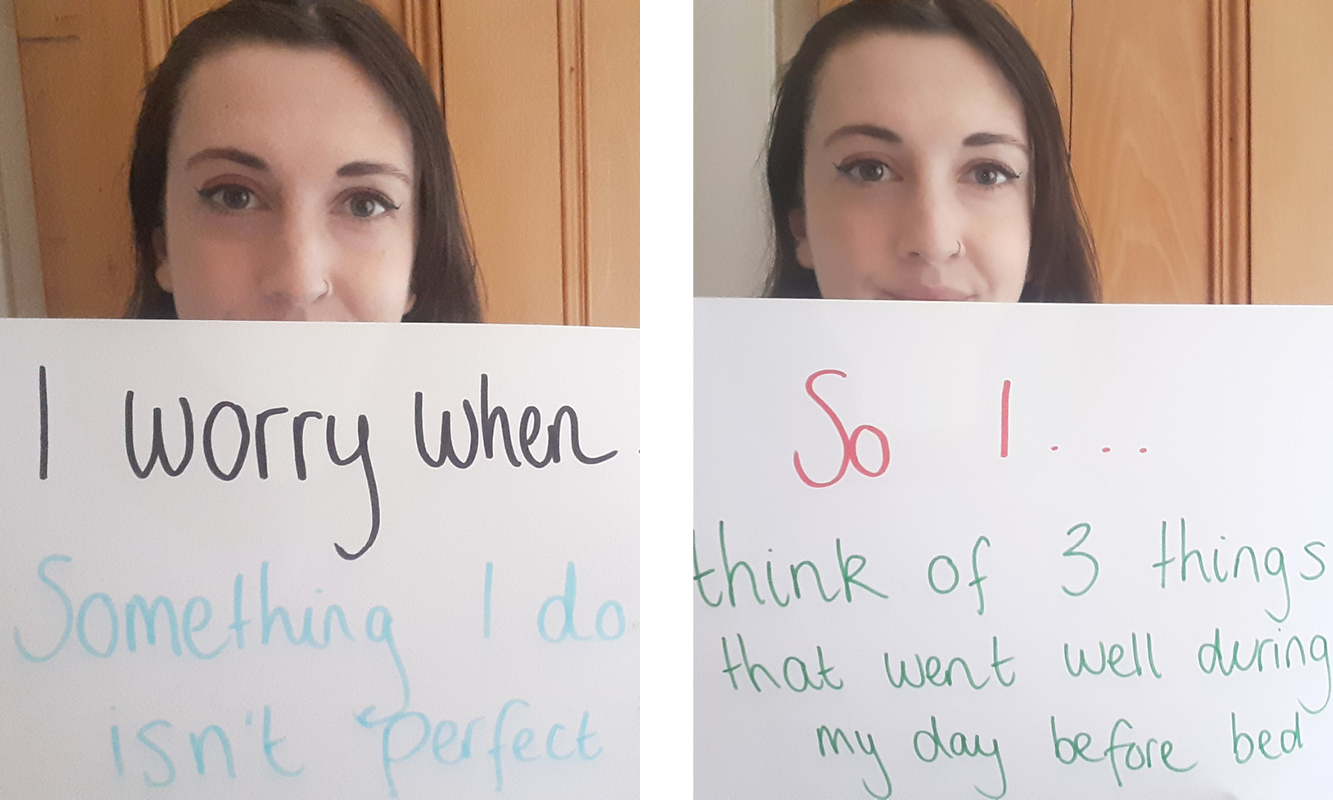
Image caption: “I worry when something I do isn’t perfect. So I think of 3 things that went well during my day before bed.”
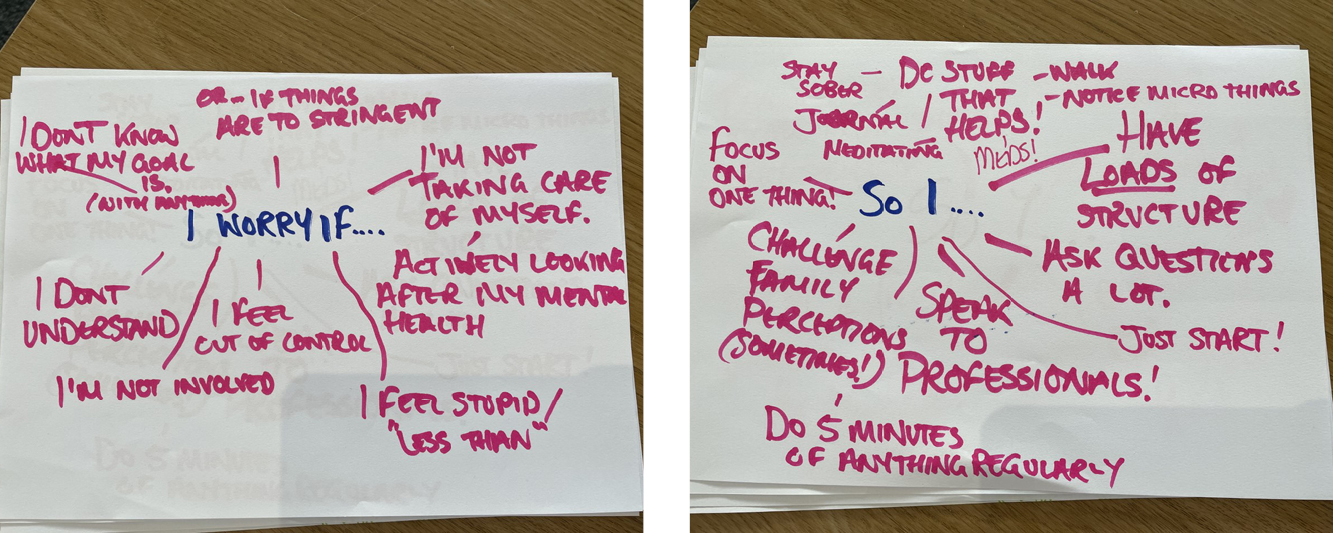
Image caption: “I worry if: I don’t know what my goal is; I’m not taking care of myself; I feel stupid or ‘less than’; I feel out of control; I’m not involved; I don’t understand. So I: do stuff that helps! e.g. stay sober, walk, notice micro-things, journal, meditate, focus on one thing; challenge family perceptions (sometimes!); do 5 minutes of anything regularly; speak to professionals; ask questions a lot; have LOADS of structure.”
Move On’s Chairperson, Ash, gave us a technique he likes to use to deal with his work-related anxieties:
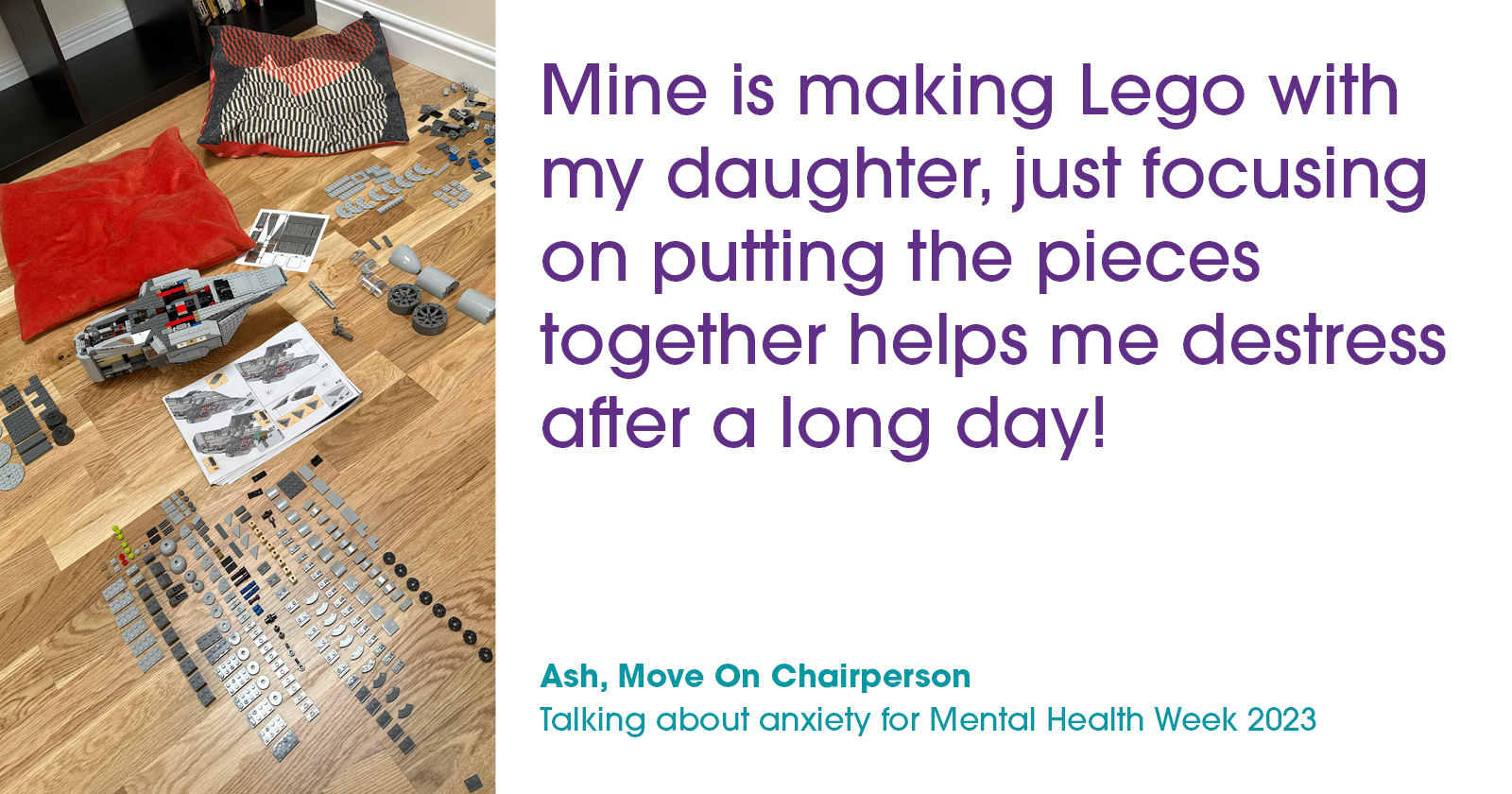
Winding-down Wednesday
The staff team in Glasgow had a winding-down Wednesday. They downed tools and did some group meditation in the office (or at home) and then reflected on how it benefitted them. You can give the meditation below a try whenever suits you:
Take a few moments to connect with your inner self
For meditation is good for the spirit, and good for your health
Take a breath, deep down in your belly
But don’t forget to switch off your telly
Out through the mouth, in through the nose
Relax from your fingers, down to your toes
Breath in and count from 1-5
Soon you’ll start to feel alive
Then slowly release as you count again
You’ll be feeling lighter, maybe free of pain
This is something you can do each day
Whether at home, work or play
From life stresses, your body really keeps the score
So, make relaxation a necessity, never a chore!
Thursday: the Qigong technique
On Thursday, Shug, a Senior Development Worker shared with us this activity. He used this technique with one of his groups recently. It’s designed to help relax you and provide relief from anxiety. Have a go and let us know how you get on:
Friday: an experience shared about General Anxiety Disorder
“I’ve experienced some form of General Anxiety Disorder for as long as I remember, it comes and goes depending on what is going on in my life but the very best thing that helps is talking about it. My parents were able to help me feel better when I was able to explain how I was feeling and now I tell my partner as soon as things start to feel a bit worse.
Speaking to a professional also changed everything as they validated how I was feeling and gave me real ways of coping that felt very tailored to who I am as a person. Writing everything down is a great tip as once it’s all out I can start to see that my worries are not as huge as my brain is making them out to be and they can actually be managed and worked out without making me unwell.”
Move On staff member
A few final thoughts
Amy, one of our Development Workers, shared the thoughts of some of our mentees after discussing anxiety with their mentors. Here’s what they said:
“Always just an obstacle, something you had to beat.”
“The first step is acknowledging you need help with it. The second you do the faster it will help.”
“Need to stare it straight in the face.”
“Anxiety is a strong thing but to beat it you do need to face it.”
What resources are available to help me deal with anxiety?
Mental Health Awareness Week was set up by the Mental Health Foundation. Their website hosts lots of resources which can help in looking after all aspects of your mental health.
Mental Health UK and Mind UK also have amazing resources available on their websites. Check them out to learn more about anxiety and the support which is available.
